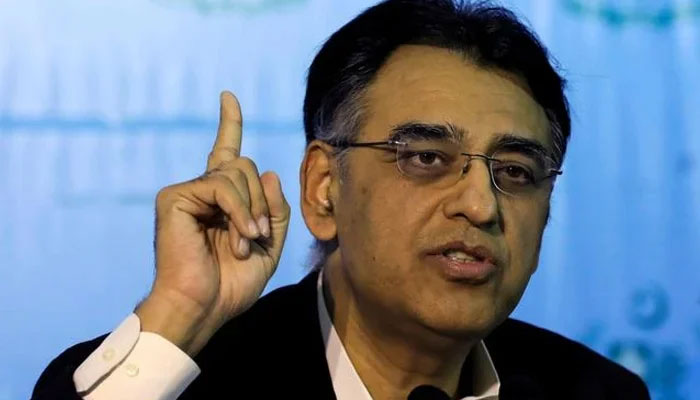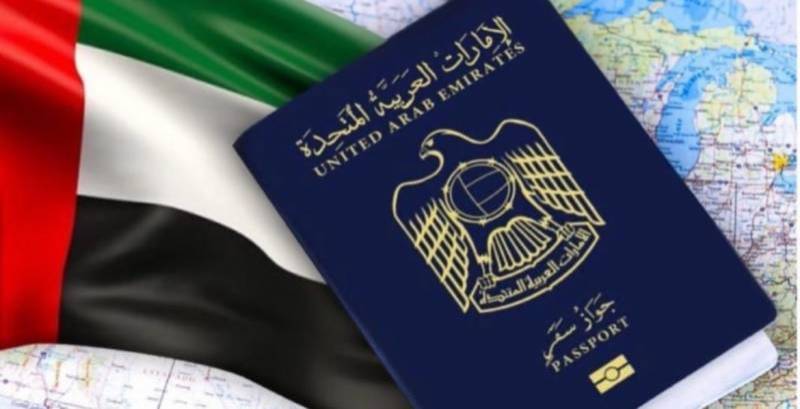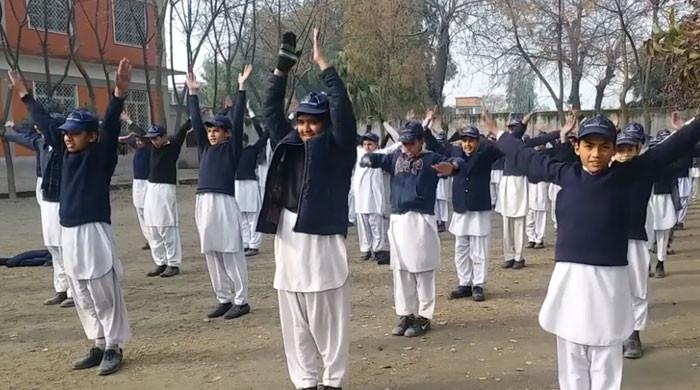 Former federal minister for planning, development, and special initiatives Asad Umar. — AFP/File
Former federal minister for planning, development, and special initiatives Asad Umar. — AFP/FilePakistan Tehreek-e-Insaf (PTI) leader Asad Umar distanced himself from cipher gate involving chief Imran Khan, saying that the ministry he held during his party's government had no role in the matter.
He said this while speaking to the media outside the anti-terrorism court (ATC) in Islamabad on Thursday.
Khan, who was ousted from power via a no-trust motion in April last year, had claimed that a diplomatic cipher sent by Pakistan's envoy in Washington contained a threat from the US to topple the PTI-led government.
Speaking about cipher case related to the alleged use of diplomatic cable for vested and political purposes, Umar said he believed that the classified document was used legally.
The Federal Investigation Agency (FIA) in August this year arrested PTI chief Imran Khan and Vice Chairman Shah Mahmood Qureshi in cipher case after booking them under Official Secrets Act.
Umar said diplomatic cipher is sent to four officials — the prime minister, foreign ministry, army chief and DG ISI.
“Only my name and not planning ministry was mentioned in the [cipher] FIR,” he said while apparently distancing himself from the cipher controversy as he served as the planning minister in the PTI-led government.
'Correct decision'
In the same interaction with journalists, Umar termed the Supreme Court’s landmark verdict on the law regulating the chief justice’s powers a “correct decision,” while asking “why [PML-N president] Shehbaz Sharif is celebrating decision”.
Umar said overall the top court’s verdict was correct.
The Supreme Court on Wednesday, with a majority decision 10-5, sustained the Supreme Court (Practice and Procedure) Act 2023, a law aimed at clipping the administrative powers of the chief justice of Pakistan as being constitutional, and dismissed the pleas challenging the vires of the law.
The CJP mentioned that by a majority of 8-7 — CJP Isa, Justice Sardar Tariq Masood, Justice Syed Mansoor Ali Shah, Justice Aminuddin Khan, Justice Jamal Khan Mandokhel, Justice Athar Minallah and Justice Musarrat Hilali dissenting — sub-section (2) of Section 5 of the Act (granting a right to appeal retrospectively) is declared to be ultra vires the Constitution.
With the right to retrospective appeal denied, it means that a prospective applicant such as Nawaz Sharif could not appeal against his lifetime disqualification from participation in politics.
Responding to a question, Umar said it remains to be seen whether Pakistan Muslim League Nawaz (PML-N) supremo Nawaz Sharif, who kicked off his journey back to Pakistan a day earlier, would return to the country after the yesterday’s top court decision.
“Everyone is saying that this decision is not good for Nawaz Sharif then why Shehbaz Sharif is happy over this decision,” he quipped. “I am just asking an innocent question.. [that] both PTI and Shehbaz Sharif are happy over this decision.”
Umar was referring to the full court’s decision of not allowing right to appeal retrospectively against verdicts taken Article 184(3), meaning Nawaz may not able challenge his lifetime disqualification.
Meanwhile, Umar appeared before the ATC in the Federal Judicial Complex attack case.
During the hearing of the case, PTI chief counsel implored the court to issue directive for his client production order in the court, who is currently held in Adiala prison in the cipher case.
ATC Judge Abul Hasnat Zulqarnain directed the Adiala jail superintendent to submit a report on the PTI chief’s security for his appearance in the court after consulting the Ministry of Interior by October 24.

 6 months ago
49
6 months ago
49





